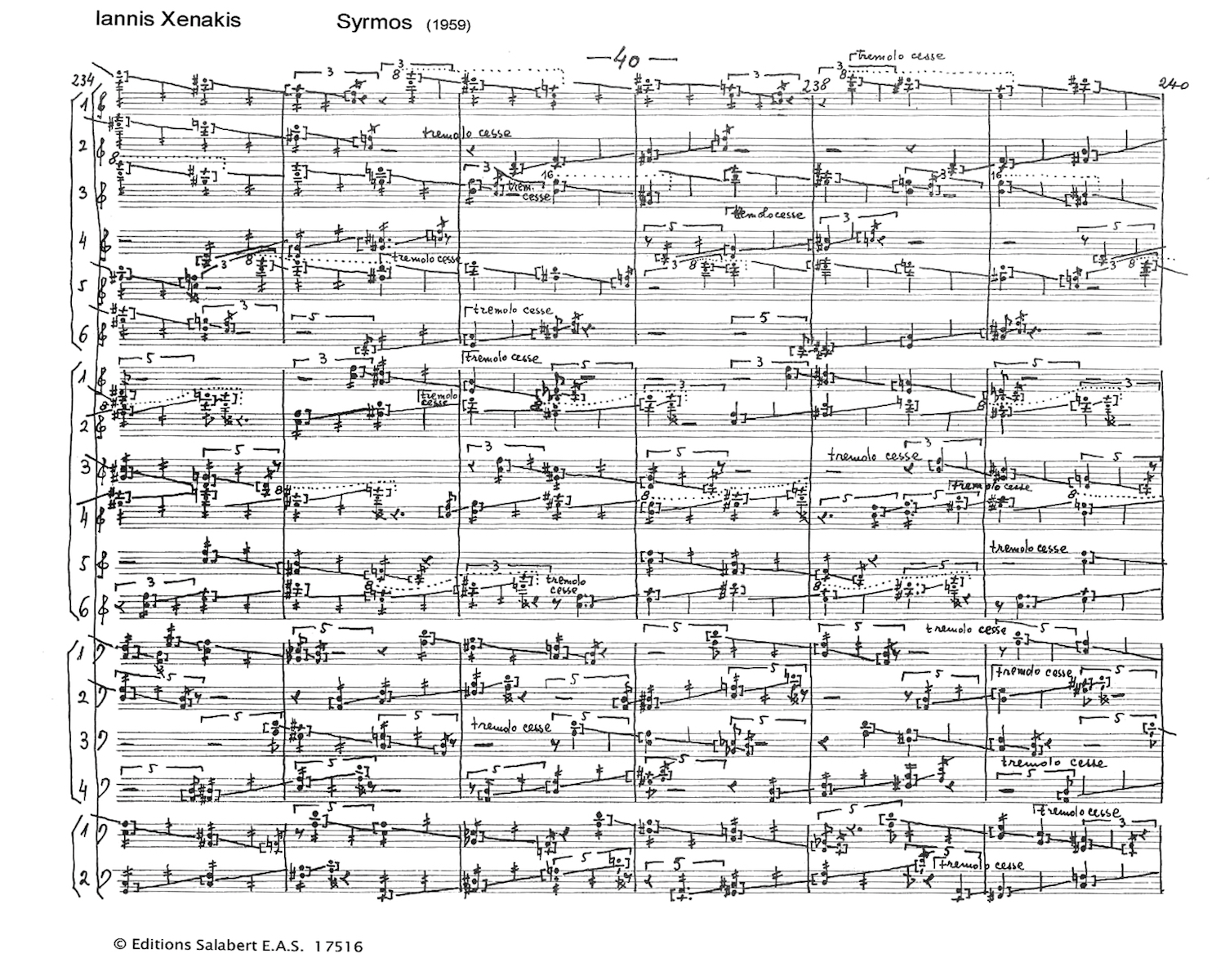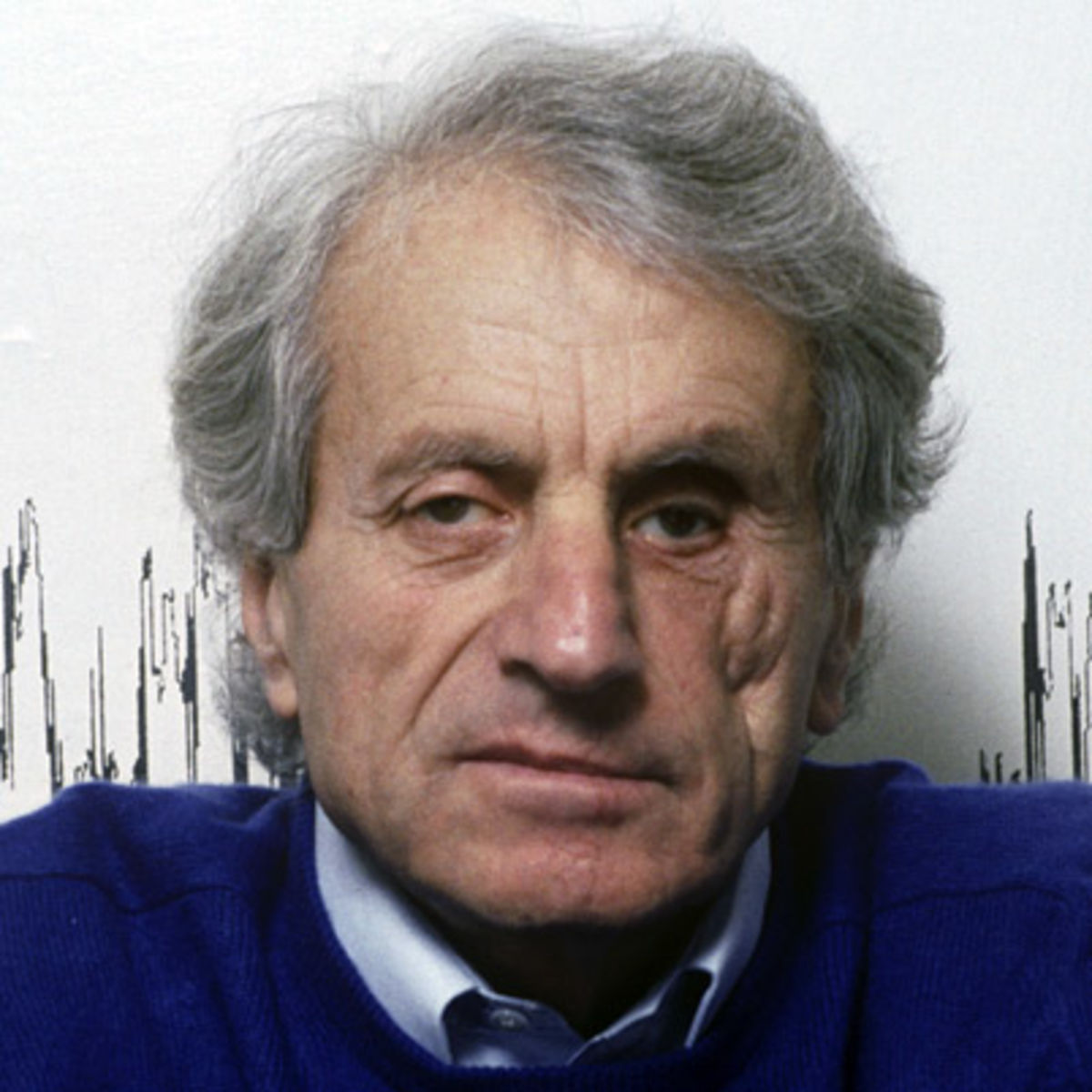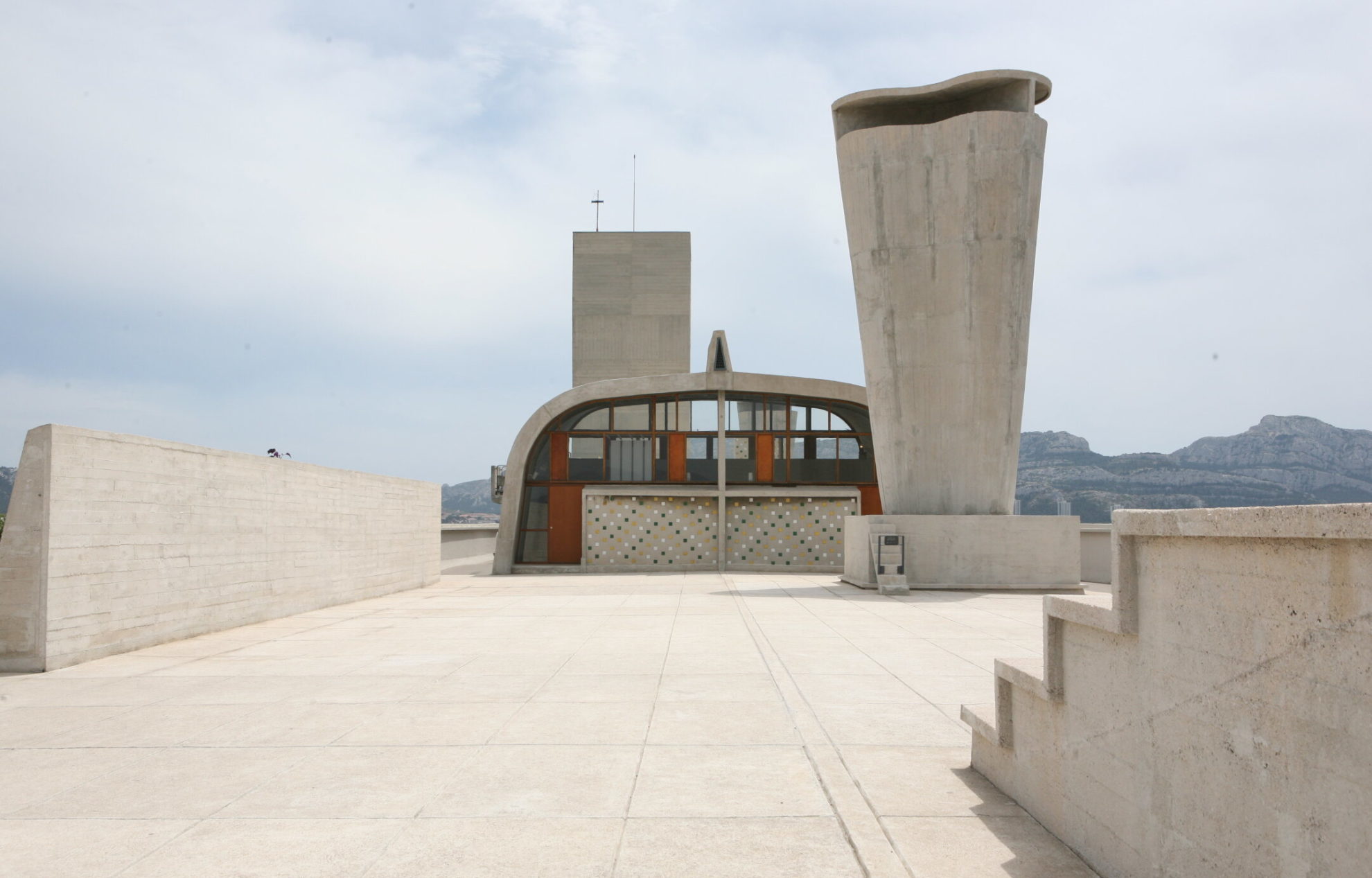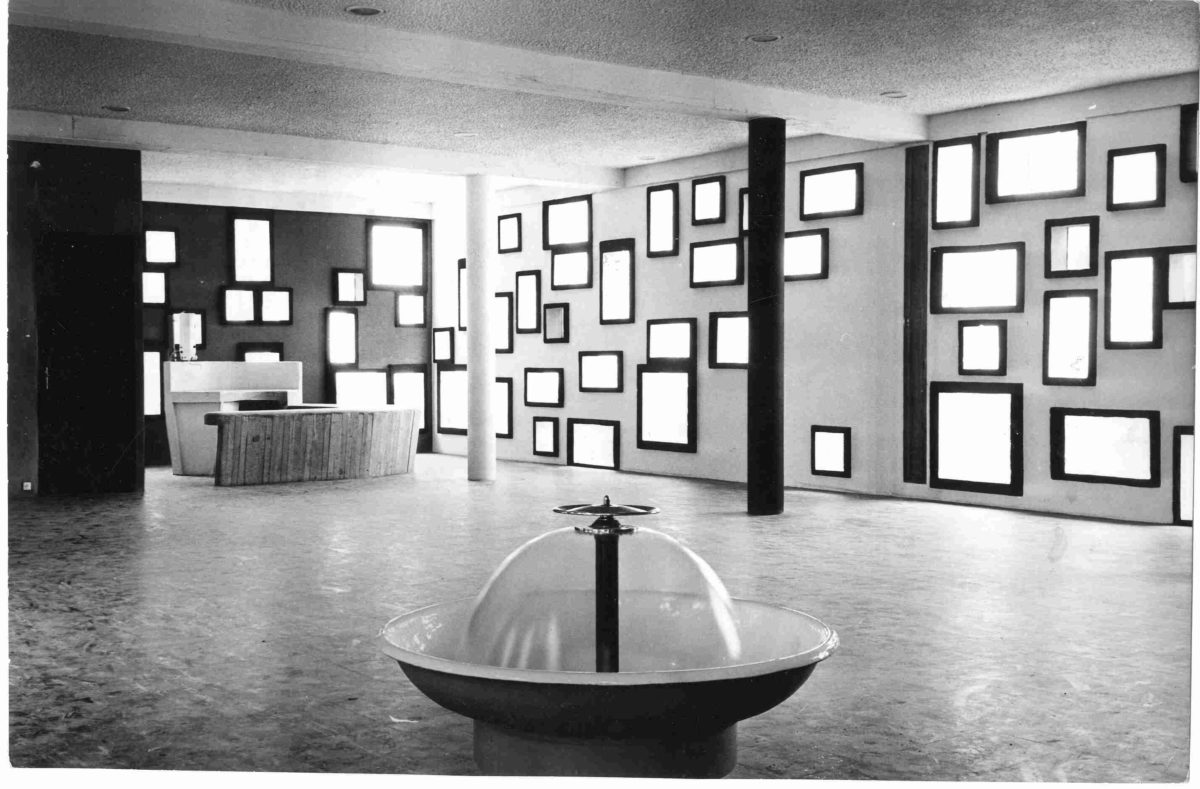
IANNIS XENAKIS COMPOSER, ARCHITECT, VISIONARY Autre Magazine
Iannis Xenakis (May 29th 1922 - February 4th 2001) was a Romanian-born Greek ethnic, naturalized French composer, music theorist, and architect-engineer. He is commonly recognized as one of the most important post-war avant-garde composers. Xenakis pioneered the use of mathematical models in music such as applications of set theory, stochastic.

Xenakis, Iannis Music and Architecture
The Greek composer and architect Iannis Xenakis (1922Xenakis ( -2001 postulated after Gabor that all sound was integration of grains of elementary sonic particles of some quanta (Xenakis.

Le Corbusier & Iannis Xenakis World Fair Expo '58 Brussels… Flickr
Iannis Xenakis (1922-2001) was a polymath, a man given to many disciplines including engineering, music, architecture and mathematics. Best known for his avant garde music, Xenakis used the.

Iannis Xenakis at his studio in Paris ZKM
Reviews How Iannis Xenakis abandoned architecture and remade modern music Douglas Murphy 30 October 2023 Iannis Xenakis in front of the UPIC machine ( c. 1980). Photo: © Collection Xenakis family You must close the door behind you as you enter the Iannis Xenakis survey at EMST in Athens, in order to truly savour the onslaught within.

"Iannis Xenakis Composer, Architect, Visionary," The Drawing Center
Iannis Xenakis, (born May 29, 1922, Brăila, Romania—died February 4, 2001, Paris, France), Romanian-born French composer, architect, and mathematician who originated musique stochastique, music composed with the aid of electronic computers and based upon mathematical probability systems.

"Sound Morphology" (Bil Smith Composer) "A Xen (Zen) Gallery
Xenakis was no architectural dilettante: before he became a full-time composer, he worked with Le Corbusier for a decade after his arrival in Paris from Greece in 1947. The Philips Pavilion.

How Iannis Xenakis turned his back on architecture for classical music
Le Corbusier would take on the sole task of developing the interior of the vessel, leaving the exterior design of the pavilion to the responsibility of his protégé designer Iannis Xenakis, whom.

Thomas Deckker Architect Commentary The Temple of Apollo at Stourhead
Alessandra Capanna summarizes the life and work of Iannis Xenakis, who passed away on 4 February 2001.He was a musician, but above all he was a theorist and pure researcher who used mathematical thought as a basis for of his compositions. Because of this, his way of working more closely resembles that of a philosopher of science than that of an.

58 best iannis xenakis. images on Pinterest Architecture, Architects
The quintessential example of this phenomenon is composer Iannis Xenakis (1922-2001), whose complex ideas sprouted from a natural love of architecture and mathematics. In a tightly constructed show now at the Drawing Center curators Sharon Kanach and Carey Lovelace have created a heady glimpse of the visual side of Xenakis, the composer who.

Pierre Boulez Iannis Xenakis Selected Piano Works by D.E. Okonsar
While the Pavilion has long been recognised as a seminal work, scholars have tended to overlook the aesthetic intentions of its chief designer, the composer Iannis Xenakis, often simplistically characterising the building as an architectural 'translation' of music.

Iannis Xenakis, dans l’intimité d’un révolutionnaire
His architectural output offers ways into his music's imaginative world. Take the Philips Pavilion that Xenakis designed for the Brussels World's Fair in 1958 and for which he and Edgard Varèse.

Architecture Iannis Xenakis
Iannis Xenakis was awarded the Kyoto Prize in 1997, considered the Nobel Prize of Music, and the Polar Prize in 1999. ABOUT THE CURATORS Iannis Xenakis: Composer, Architect, Visionary is co-curated by Sharon Kanach and Carey Lovelace. Sharon Kanach, a Paris-based new music specialist who worked closely with Xenakis until the end

Le Corbusier e Iannis Xenakis Philips Pavilion Expo '58, Bruxelles
Iannis Xenakis: Composer, Architect, Visionary explores the fundamental role of drawing in the work of Greek avant-garde composer Iannis Xenakis (1922-2001). A leading figure in twentieth century music, Xenakis was trained as a civil engineer, then became an architect and developed revolutionary designs while working with Le Corbusier..

Architecture Iannis Xenakis
Fusing the ancient greek terms "poly" ("many") and "topos" ("place"), Greek-French composer Iannis Xenakis coined a neologism for his set of spatial creations that mixed together sound, light, color and architecture during live performances.

Architecture Iannis Xenakis
Karl Amadeus Hartmann. Karl Amadeus Hartmann (2 August 1905 - 5 December 1963) was a German composer. [1] Sometimes described as the greatest German symphonist of the 20th century, [2] he is now largely overlooked, particularly in English-speaking countries.

TURNING POINTS IANNIS XENAKIS London Sinfonietta
Giannis Klearchou Xenakis (also spelled for professional purposes as Yannis or Iannis Xenakis; Greek: Γιάννης "Ιωάννης" Κλέαρχου Ξενάκης, pronounced [ˈʝanis kseˈnacis]; 29 May 1922 - 4 February 2001) was a Romanian-born Greek-French avant-garde composer, music theorist, architect, performance director and engineer. [1]